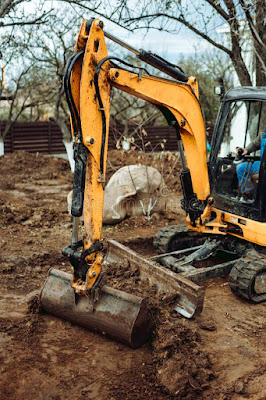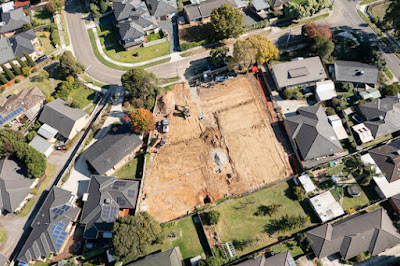How Demolition Auckland Deals With Large and Small-Scale Demolitions
Demolition is an earthworks process that removes structures or parts of structures from a site. Demolition is often used to make way for new construction or to clear away debris after a natural disaster. Demolition is a necessary evil in many cases, allowing for new construction or repairs to take place. It can be an exciting process, with the sounds of metal against metal and concrete crumbling creating a satisfying noise. Demolition can also be dangerous, requiring workers to be experts in their craft to avoid injury.
Demolition of Auckland's Services
For demolition Auckland services, Tigers Equipment offers a wide range of services, from the demolition of large buildings to the demolition of small structures. Tigers Equipment Demolition Auckland is a professional demolition and earthworks contractor based in Auckland, New Zealand. The company specializes in the removal and disposal of all types of debris, including building debris, industrial waste, and general construction rubble.
The company’s fleet of earthmoving equipment includes excavators, loaders, bulldozers, and backhoes. Demolition Auckland’s experienced team is equipped to handle any size project, from small repairs to large demolitions.
For years, Demolition Auckland has been providing quality demolition services to clients throughout the Auckland area. If you need help removing debris or carrying out an earthworks project, contact Demolition Auckland today for a free consultation.
The Effects of Demolition
Large-scale demolitions can have many effects on the environment, both in the short term and in the long term. Small-scale demolitions can also have negative effects on the environment, depending on how they are done. Demolition is a process where an existing building or structure is destroyed utilizing explosives and/or fire. Demolition can be used to improve the appearance of a site, make way for new construction, or remove hazardous materials. The effects of demolition can be dramatic and should be taken into account when planning any project involving the use of explosives.
The use of explosives can have many negative consequences, both during the demolition process itself and after it has been completed. During demolition, explosions can cause structural damage to buildings, injure workers, and release dangerous materials into the environment. The debris created by demolition also presents a hazard to nearby residents and motorists. After demolition has been completed, leftover debris may require cleanup before it can be used in construction again.
Tigers Equipment Demolition Auckland deals with Large and Small-scale Demolitions
For Demolition Auckland, Tigers Equipment has been dealing with large and small-scale demolitions for years, adapting to the needs of each project. From removing a structure that is no longer needed or viable to destroying an illegal building, Demolition Auckland always ensures the job is done safely and effectively.
Most demolition projects are completed in a day or two, but there are times when demolition takes weeks or even months. Knowing how to handle large and small-scale demolition is essential for any contractor, and Demolition Auckland has the experience and knowledge required to get the job done right.
From earthmoving equipment to site safety protocols, Demolition Auckland has everything necessary to complete any demolition project successfully. Contact us today if you need help with a large or small-scale demolition in Auckland!
Methods: Large and Small-Scale Demolition Methods Covered
The different methods employed when demolishing a building or structure can be broadly classified into large and small-scale demolition methods.
Large-scale demolition methods typically involve the use of earthmoving equipment, such as bulldozers and backhoes, to clear the site of all structures before beginning the deconstruction process. This method is often used for more complex or large buildings and can take several days to complete.
Small-scale demolition methods, on the other hand, typically involve using less powerful equipment such as hammers and chisels to tear down smaller buildings or structures. This method is often faster and easier to execute, but can also be less destructive overall.
Both types of demolition have their benefits and drawbacks; depending on the situation, one may be more appropriate than the other.
Procedures: Demolition Auckland's Procedures for Large and Small Demolitions
Auckland is a city with many infrastructure needs that must be met. Demolition is one of the many processes used to meet these needs, and with so many structures in need of removal, Auckland has developed a set of procedures for large and small demolitions.
The procedures for large demolitions are outlined in the Demolition Auckland Procedures Manual and cover everything from the pre-demolition planning stages to the actual demolition process. The manual specifies who should be involved in each stage of the demolition process, what resources need to be available, and how preparations should be made for weather conditions.
The procedures for small demolitions are less detailed but still cover all the necessary steps. This is because smaller demolitions usually involve removing only one or two pieces of equipment or one or two buildings, so there is no need for a full-blown procedure manual.
Demolition Auckland services are now provided by an experienced and professional team of demolition experts. With the help of state-of-the-art equipment, they can deal with large and small-scale destruction tasks quickly and efficiently.
Tiger's equipment is a valuable asset for any demolition company, as they allow for quick and efficient completion of tasks. The large variety of tools that tigers provide ensures that no job is too big or too small for them.
The team at demolition Auckland are experts at both large and small-scale destruction, ensuring that your needs will be met no matter what they may be. Contact them today to get started on your next project!



Comments
Post a Comment